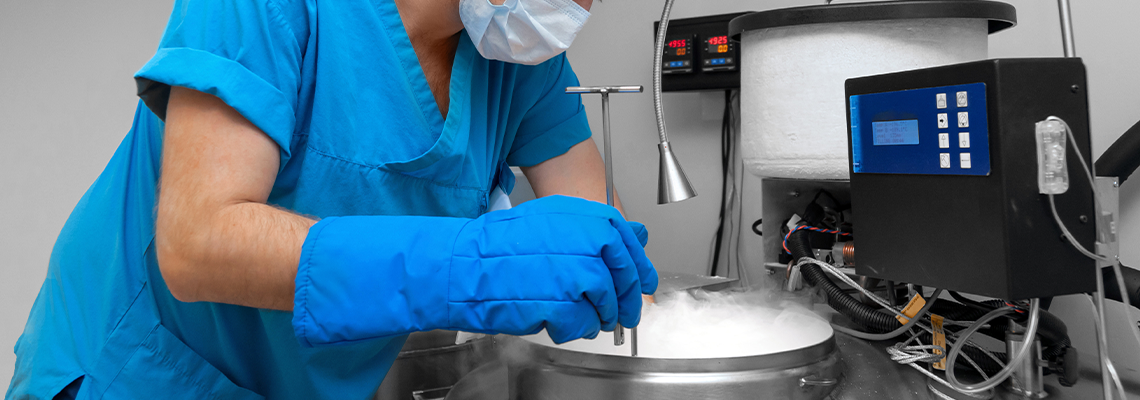Adoption is one of the most rewarding ways to grow a family, but it’s also a legal process that can bring questions, uncertainties, and emotions. At The Law Office of Karen M. Holman, I’m dedicated to guiding families through each step of this journey.
One Child at a Time

Frequently Asked Questions About Egg Donation and Family Law
As a family law attorney with over a decade of experience, I've guided many clients through the intricacies of egg donation and reproductive law. I’ve worked cases in Harrisonburg, Staunton, Woodstock, Strasburg, and Stephens City. My personal journey as an adoptive mother has provided me with unique insights and a deep sense of empathy for those treading these emotional and legal waters. I understand the desire to build a family and the legal hurdles that sometimes accompany this dream. Below, I've compiled a list of frequently asked questions about egg donation and how Virginia's reproductive law impacts these arrangements.
What Is Egg Donation?
Egg donation is a process where a woman donates her eggs to another individual or couple to assist them in having a child. This procedure can be part of fertility treatments such as in vitro fertilization (IVF). The donated eggs are fertilized with sperm, and the resulting embryos are implanted into the recipient's uterus.
In Virginia, egg donation is a legally recognized method of family building. Reproductive law in this state has specific provisions to protect all parties involved, including the donor, the recipient, and the resulting child.
How Does Virginia Law Treat Egg Donation Agreements?
Virginia's reproductive law requires that egg donation agreements be formalized in writing. This contract outlines the rights and responsibilities of the donor and the recipient. As a family law attorney, I strongly recommend that both parties seek legal counsel to draft and review these agreements to cover all legal aspects thoroughly.
The agreement typically includes clauses about the anonymity of the donor, compensation, parental rights, and the handling of unused embryos. It's crucial to understand that once the eggs are donated and fertilized, the donor relinquishes any parental rights to the resulting embryos or children. This clear delineation helps prevent future legal disputes.
What Are the Legal Rights of Egg Donors in Virginia?
Egg donors in Virginia have the right to make informed decisions about their participation in the donation process. They must provide informed consent after being fully briefed on the medical procedures, risks, and implications involved. Donors also have the right to receive fair compensation for their donation, as agreed upon in the contract.
However, once the eggs are donated, donors typically waive any rights to make decisions about the embryos or resulting children. Virginia's reproductive law supports the stance that the intended parents hold all parental rights and responsibilities.
Can Egg Donors and Recipients Remain Anonymous?
Anonymity is an important consideration in egg donation. In Virginia, both donors and recipients can choose to remain anonymous if they prefer. The donation agreement should specify the level of anonymity or openness desired by both parties. Some donors and recipients opt for complete anonymity, while others agree to share identifying information or maintain some level of contact.
It's essential to discuss these preferences before proceeding with the donation. Anonymity can impact future contact and the rights of the child to know their genetic background. As your attorney, I'll make sure that your preferences are clearly stated and legally protected in the agreement.
What Are the Responsibilities of Intended Parents in Egg Donation?
Intended parents in Virginia have several responsibilities by law. They must make sure that all legal agreements are in place and that the donor's rights are respected. This includes providing fair compensation and covering any medical expenses related to the donation process.
Intended parents also take on all parental rights and responsibilities once the child is born. This means they're the legal parents, with all the rights and duties that come with parenthood. The law protects their position, guaranteeing that the donor can't claim parental rights after the donation.
How Does Egg Donation Affect Parental Rights?
One of the most critical aspects of egg donation is the transfer of parental rights. In Virginia, the law is clear that the donor relinquishes all parental rights upon donation. This means that once the eggs are donated and fertilized, the intended parents are legally recognized as the child's parents.
This transfer of rights is a fundamental part of the egg donation agreement. It protects the intended parents' rights to raise the child and makes clear that the donor has no legal claims. As your attorney, I'll make sure this aspect is explicitly covered in the contract to prevent any potential disputes.
Are There Any Legal Risks Involved in Egg Donation?
While egg donation is a well-established process, it's not without legal risks. These can include disputes over parental rights, disagreements about the use of embryos, or issues related to compensation. Virginia's reproductive law provides a framework to minimize these risks, but having a clear, legally binding agreement is essential.
As an experienced family law attorney, I'll guide you through these potential pitfalls. My goal is to protect your rights and make the process as smooth and stress-free as possible. With the right legal support, you can focus on the positive aspects of building your family through egg donation.
What Happens If the Intended Parents Divorce or Separate?
This is a sensitive topic, but it’s an important one to consider. If the intended parents divorce or separate after the egg donation process has begun, the terms of the egg donation agreement and any other relevant contracts will come into play. In Virginia, reproductive law requires that custody and parental responsibilities be clearly defined in such agreements to prevent disputes.
In these situations, it's critical to revisit the legal agreements and possibly involve a mediator to help resolve any conflicts. The best interests of the child will always be the priority, and as your attorney, I'll be there to help you understand your rights and options.
What Happens to Unused Embryos?
Unused embryos are another important consideration in egg donation. In Virginia, reproductive law requires that the egg donation agreement specifies what will happen to any unused embryos. Options may include freezing for future use, donating to another couple, or donating for research purposes. The decision should be made with careful consideration and mutual agreement between the donor and the intended parents. As your attorney, I'll make certain that these options are clearly outlined in your agreement to prevent any future misunderstandings or disputes.
How Can an Attorney Help With Egg Donation?
Understanding the legal aspects of egg donation can be challenging, but help is available. As an attorney with personal and professional experience in family building, I can provide the guidance and support you need. I'll help you understand your rights and responsibilities, draft and review contracts, and see to it that you stay in compliance with all legal requirements.
My compassionate approach means that your emotional well-being is also considered. I understand the intricacies of family law, and I'm here to help you through every step of the process.
Reach Out If You’re Considering Assisted Reproductive Technology
Egg donation is a wonderful way to help build families, but it comes with significant legal considerations. In Virginia, the law provides a robust framework to protect the rights of donors, recipients, and the resulting children. As your attorney, I'll thoroughly address all legal aspects, providing you with the peace of mind to focus on the joy of expanding your family.
Managing the adoption process or other family law procedures can be a challenging journey to face by yourself. With a knowledgeable and compassionate attorney at your side, your options will begin to unfold in front of you. Contact me at The Law Office of Karen M. Holman in Winchester, Virginia today to schedule a consultation. I gladly serve clients across Northern Virginia and the Shenandoah Valley.
RECENT POSTS
Parenthood is a cherished goal for many, and sperm donation offers an important option for turning that goal into reality. However, this process raises important questions about legal rights, responsibilities, and agreements.


